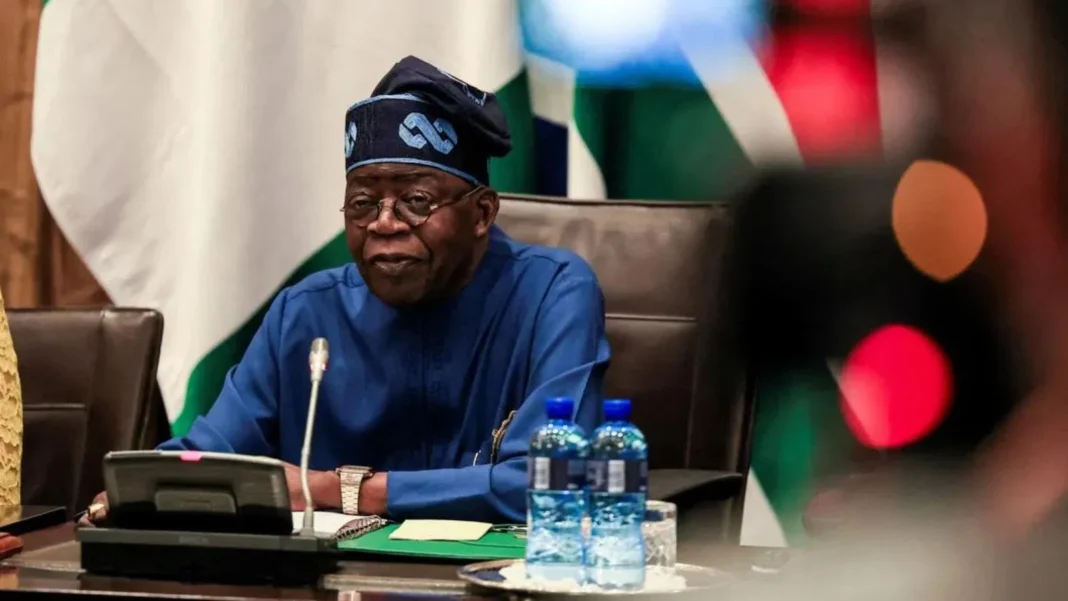Fears are mounting that Nigeria may be edging toward a one-party system as the opposition Peoples Democratic Party (PDP) struggles to hold its remaining strongholds amid an intensifying wave of defections to the ruling All Progressives Congress (APC).
According to investigations by The PUNCH, at least four PDP governors in the North are in advanced discussions to join the APC ahead of the 2027 general elections — a development that could further erode the PDP’s dwindling influence across the country.

PDP’s shrinking map
Since returning democracy in 1999, the PDP had dominated Nigeria’s political landscape, holding power at the federal level for 16 consecutive years. Today, the party governs just eight of 36 states — Bauchi, Oyo, Adamawa, Osun, Plateau, Taraba, Zamfara, and Rivers — marking its weakest position in the Fourth Republic.
Recent defections by Governors Sheriff Oborevwori (Delta), Umo Eno (Akwa Ibom), and Peter Mbah (Enugu) have triggered renewed attention on the North, where the governors of Plateau, Taraba, Zamfara, and Adamawa are reportedly weighing similar moves.
Analysts warn that the continuous loss of PDP-controlled states could tilt Nigeria toward effective one-party dominance, undermining the country’s democratic checks and balances.
“This is not just about numbers,” one political observer said. “It’s about perception — that opposition politics no longer pays in Nigeria.”
APC confirms ongoing talks
The APC National Vice Chairman (South-East), Dr. Ijeoma Arodiogbu, confirmed that high-level negotiations were underway with several governors from the PDP and Labour Party.
“We are expecting the governors of Plateau, Taraba, Rivers, and Abia (Labour Party) to join us,” he said.
“Most of these defections are expected before our next congresses. Once they happen, it will reaffirm APC’s status as Nigeria’s most dominant and organized political platform.”
Arodiogbu attributed the APC’s appeal to its open-door policy and reform-oriented leadership, which he said had created “a home for all progressives.”
“The APC is growing not just in size but in quality leadership. Our inclusive style under President Bola Tinubu’s Renewed Hope Agenda is attracting credible leaders nationwide,” he added.

Taraba: Kefas’ move seen as ‘imminent’
Strong indications suggest that Taraba State Governor Agbu Kefas may soon dump the PDP — a move that could end the party’s 26-year dominance in the state.
Multiple insiders confirmed to The PUNCH that discussions between Kefas’ team and APC stakeholders in Abuja were at an “advanced stage.”
“It’s no longer speculation. Consultations are ongoing, and the governor is only deciding on timing,” said a senior aide.
If confirmed, Kefas’ defection would represent a major political shift, giving him greater access to federal support for key infrastructure and security projects.
An APC insider in Jalingo described the development as “a homecoming long overdue,” adding that Kefas’ popularity would “strengthen the APC’s grassroots presence.”
However, PDP loyalists in Taraba warned that such a move would amount to “a betrayal of mandate.”
“If Kefas leaves, PDP is finished in Taraba,” a senior party member admitted.
Though the governor has not made any official statement, his frequent visits to APC-controlled states and meetings with top federal officials have intensified the speculation.

Adamawa: Fintiri’s silence fuels rumours
In Adamawa State, Governor Ahmadu Umaru Fintiri — who won two elections under PDP despite APC control at the centre — has been the subject of persistent defection rumours.
Earlier this year, APC spokesperson Mohammed Abdullahi confirmed ongoing talks, describing them as “fruitful.”
“There are positive discussions with Governor Fintiri over his return to the APC,” he told The PUNCH.
But PDP officials in the state dismissed the claim as “speculative and unrealistic,” insisting Fintiri remained “the compass of the PDP.”
Reports of a closed-door meeting between Fintiri and National Security Adviser Nuhu Ribadu in Yola — said to have lasted over four hours — added fuel to the speculation. Sources claimed the governor was offered 2027 political guarantees, including influence over his successor and national representation.
Despite this, Fintiri’s aides insist he remains loyal to the PDP “for now.
Plateau: Mutfwang under pressure but stands firm
In Plateau State, Governor Caleb Mutfwang admitted he was under pressure to join the APC but publicly reaffirmed his commitment to the PDP.
“It’s true that there has been pressure,” he said at a public event. “But only two entities can ask me to change my party — God and the people. Have you asked me to go anywhere?”
The crowd shouted, “No!”

Plateau has long been a PDP stronghold, and residents view the 2023 election victory as a political “homecoming” after eight years of APC rule.
Even so, powerful APC figures are reportedly lobbying Mutfwang behind the scenes. The North Central APC Forum, led by Alhaji Saleh Zazzaga, recently urged him to join the party, arguing that the resistance against him came from “self-interested politicians.”
“Those rejecting Mutfwang lost their polling units in the last election. We want credible leaders who can deliver victory for Tinubu in 2027,” Zazzaga said.
Despite the outreach, Mutfwang’s media aide Gyang Bere reaffirmed the governor’s loyalty to the PDP, adding that he can win re-election “without switching parties.”
Zamfara: cracks deepen as PDP members defect
In Zamfara State, Governor Dauda Lawal is also battling defection rumours, despite repeated denials from his spokesperson, Mustafa Kaura.
In the past week alone, 15 top PDP officials — including youth leaders, treasurers, and former aspirants — defected to the APC, citing frustration with the PDP’s internal politics.
“The PDP now favours only the rich,” said former youth leader Sahad Dabo, adding that he was inspired by Senator Abdulaziz Yari and Bello Matawalle’s leadership.
The defectors were formally received by Minister of State for Defence Bello Matawalle and APC Chairman Tukur Danfulani during a ceremony in Abuja.
While Lawal insists he remains in the PDP — even broadcasting a jingle across local radio stations to deny defection rumours — the APC’s local leadership said they would reject him even if he wanted to join.
“We don’t need any unpopular person like Governor Lawal to win elections,” said APC Publicity Secretary Yusuf Idris, citing the party’s recent landslide victory in a state assembly by-election.
A party on the brink
With multiple governors under pressure and influential members defecting, the PDP now faces its biggest existential threat since 2015.
Analysts warn that unless it rebuilds internal unity and offers credible opposition to the APC, Nigeria’s democracy could be heading toward a de facto single-party era.




